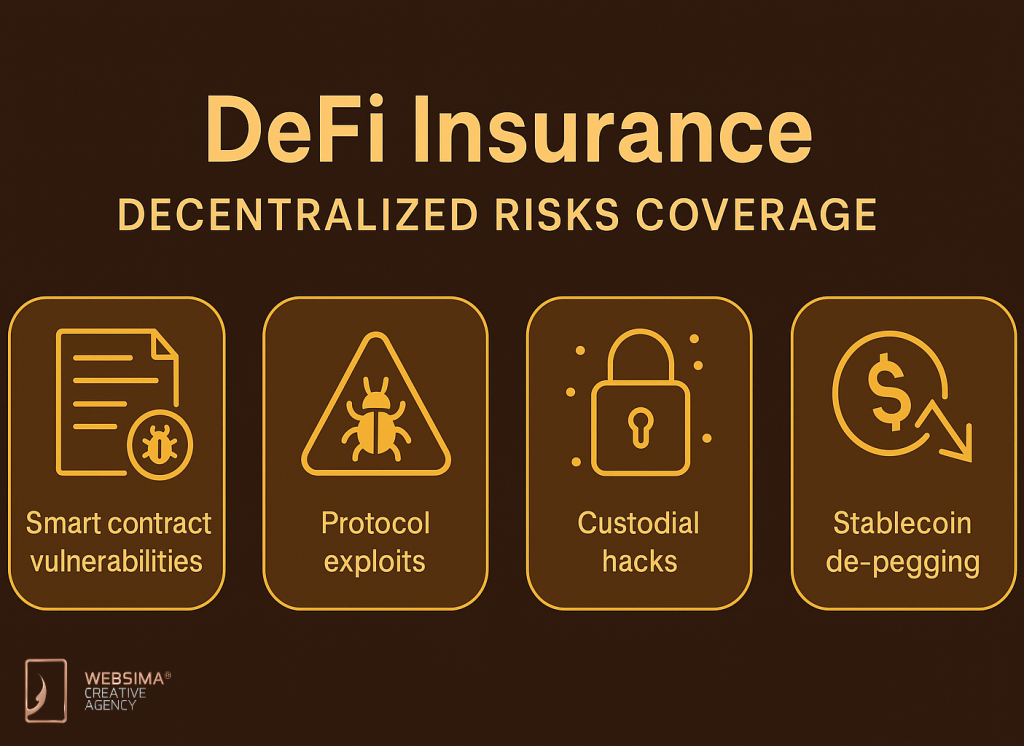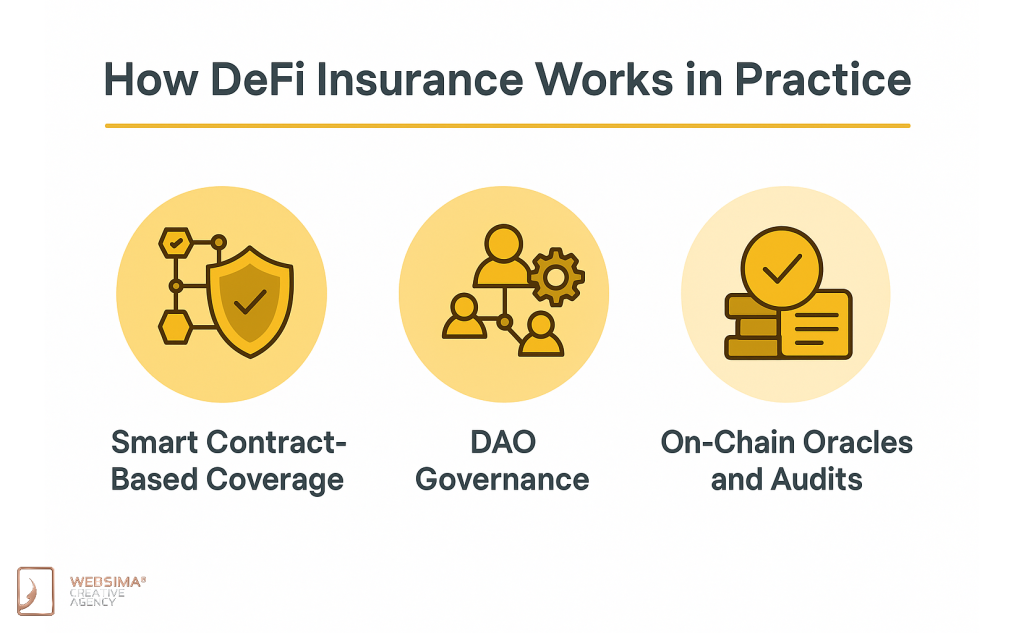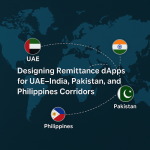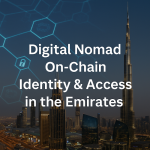Introduction
Decentralized Finance (DeFi) has revolutionized the global financial ecosystem by offering trustless, permissionless financial services that are faster and more transparent than traditional systems. Likewise, DeFi is transforming the banking sector in Dubai, however, one of its most significant challenges remains risk management—a gap now being addressed by a rapidly growing sector: DeFi insurance.
In forward-thinking markets like Dubai, this emerging layer of protection is creating new investment confidence and helping legitimize the broader DeFi landscape. In this article, we explore how DeFi insurance in Dubai is not only evolving but also becoming essential for the city’s blockchain ecosystem and global investor appeal.
Hey guys! My new video in the DeFi series is out! We explore how DeFi has evolved over the years.
Subscribe to my YouTube channel to stay tuned for more content.
Like and RT if you find it useful ❤️ pic.twitter.com/UfujwfAysj
— Nidhi Singh (@nidhisinghattri) April 13, 2025
What is DeFi Insurance?
Decentralized Risk Coverage

DeFi insurance refers to blockchain-based protocols that provide coverage for specific risks such as:
- Smart contract vulnerabilities
- Protocol exploits
- Custodial hacks
- Stablecoin de-pegging
Unlike traditional insurance, DeFi insurance operates through smart contracts, DAOs (Decentralized Autonomous Organizations), and liquidity pools, eliminating intermediaries while automating claims and payouts.
The Importance of DeFi Insurance
As more assets are locked in DeFi protocols (over $50 billion as of 2024), risk mitigation has become vital. Insurance solutions bring security and trust to a sector still vulnerable to technical and governance flaws, enabling broader participation from institutions and retail users alike.
Without such protections, large-scale DeFi adoption—especially among institutional players—would remain limited. Coverage not only reduces exposure but also improves protocol reputations and user retention.
Why Dubai Is Emerging as a Global DeFi Insurance Hub
Regulatory Leadership
Dubai’s blockchain policies are among the most progressive globally. The establishment of VARA (Virtual Assets Regulatory Authority) ensures clear guidance on DeFi and digital assets, providing a solid legal foundation for DeFi insurance providers to launch and operate with legitimacy.
Dubai’s forward-thinking legislation actively welcomes blockchain projects while ensuring compliance, AML/KYC frameworks, and consumer protection—creating an ideal foundation for DeFi insurance platforms to scale.
Government-Backed Innovation
Initiatives like Dubai Future Foundation and Dubai Blockchain Strategy encourage R&D around smart contracts, digital identity, and decentralized governance—key pillars of DeFi insurance infrastructure.
By promoting regulatory flexibility, open innovation, and funding access, the government plays a direct role in nurturing this niche yet powerful industry.
How DeFi Insurance Works in Practice
Smart Contract-Based Coverage

Policies are written as immutable smart contracts on the blockchain. Users can:
- Purchase coverage for a specific protocol (e.g., Aave or Compound)
- Contribute capital to insurance pools and earn yields
- File claims automatically upon incident detection
This code-driven mechanism drastically reduces delays, paperwork, and subjectivity in claim approvals.
DAO Governance
The rise of DAO governance models in Dubai business ecosystem has led to many DeFi insurance platforms are governed by DAOs where token holders vote on:
- Claim approvals
- Risk pool parameters
- Treasury allocations
This model ensures transparency and community consensus over centralized authority.
On-Chain Oracles and Audits
Oracles (e.g., Chainlink) feed real-world or protocol-specific data into DeFi insurance platforms, triggering payouts or flagging anomalies. Independent code audits and bug bounties further reduce risk and bolster trust in insurance smart contracts.
Expanding Use Cases for DeFi Insurance in Dubai
1. Smart Contract Exploit Protection
Dubai’s growing number of DeFi projects—spanning tokenization, staking, and lending—are increasingly adopting insurance layers to protect user funds in case of contract failure or code vulnerabilities.
2. Stablecoin De-Peg Insurance
With stablecoins being central to many DeFi services in the UAE, insurance against de-pegging events (e.g., USDC briefly de-pegging in 2023) is becoming a sought-after hedge.
3. Institutional Adoption Enablement
DeFi insurance makes it easier for hedge funds, banks, and fintech firms in Dubai to safely allocate capital to decentralized protocols. These risk-transfer products reduce exposure to catastrophic loss and regulatory scrutiny.
4. NFT and Metaverse Coverage
Emerging DeFi insurance products now offer protection for NFT assets, metaverse land ownership, and play-to-earn economies. As Dubai develops its metaverse economy, NFT insurance will likely become a mainstream requirement.
Global and Local Players Entering the Scene
Several insurance-focused DeFi platforms are gaining traction in Dubai:
- Nexus Mutual: A DAO-based insurance platform offering customizable risk cover for major DeFi protocols.
- InsurAce: Offers multi-chain coverage with lower premiums and cross-chain asset support, compatible with Ethereum, BNB Chain, and more.
- Uno Re: Recently expanded into the Middle East and Asia, positioning itself as a blockchain-based reinsurance protocol with DeFi-native offerings.
Local startups, often accelerated by programs like DIFC Innovation Hub and Hub71 in Abu Dhabi, are also developing hybrid models that merge traditional insurance underwriting with decentralized mechanisms.
Investment and Funding Trends
According to the 2024 UAE Blockchain Investment Report by MAGNiTT, investor appetite for DeFi infrastructure and security is growing fast. DeFi insurance platforms in particular are drawing capital for their ability to unlock institutional flows and stabilize volatile sectors.
Dubai-based venture funds such as Cypher Capital, Shorooq Partners, and Ghafi Capital are expanding their focus beyond core DeFi to include DeFi risk management protocols, given the high global demand for sustainable DeFi solutions.
Enterprise Opportunities and B2B Models
White-Label Insurance Engines
Blockchain developers in Dubai are now offering white-label DeFi insurance solutions to other fintech startups and Web3 platforms. These plug-and-play frameworks help small businesses integrate coverage without building from scratch.
Embedded Insurance in Wallets
Wallet providers and DeFi dashboards are embedding micro-insurance options within their user interfaces. For instance, when transferring funds to a DeFi protocol, users can tick a box to activate coverage—a model that aligns with Dubai’s UX-focused fintech ecosystem.
Challenges Facing DeFi Insurance in Dubai
1. Regulatory Alignment
While Dubai is open to innovation, DeFi insurance protocols must navigate:
- Definitions of “coverage” vs. “investment”
- AML/KYC compliance
- Integration with Shariah-compliant frameworks in the UAE
Dubai’s regulators are actively working to build a taxonomy for such services, but startups must consult legal experts before launching.
2. Market Awareness and Education
Startups must educate both users and regulators on:
- Smart contract reliability
- Claims resolution mechanisms
- Risk modeling and premium setting
Community-driven education, industry panels, and partnerships with academic institutions are essential to scaling awareness.
3. Reinsurance and Capitalization
Many DeFi insurance platforms struggle to maintain deep liquidity for catastrophic risk coverage. Partnerships with traditional reinsurers and capital efficiency tools (e.g., coverage tranching) are still evolving.
The Road Ahead for DeFi Insurance Dubai
Looking ahead, we expect to see:
- Licensed DeFi-native insurance entities operating legally in Dubai
- Cross-chain insurance aggregators covering multichain protocols
- Integration of AI-driven risk analysis in claims processing
- ESG-compliant insurance pools for green DeFi projects
- Bridging with traditional insurers via hybrid smart contracts and API connectivity
These trends are already being prototyped in test environments at the DIFC Innovation Hub and other tech accelerators across the UAE.
Building DeFi Insurance Solutions in Dubai?
At Websima, we help startups and enterprises develop secure, scalable, and regulation-ready DeFi insurance platforms. Whether you’re launching a DAO-governed risk pool, building multi-chain coverage infrastructure, or looking for company formation in the UAE, our team is ready to support you.
Contact us today to future-proof your DeFi product in the world’s fastest-growing blockchain ecosystem.





